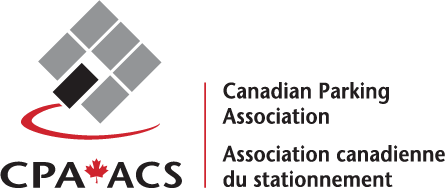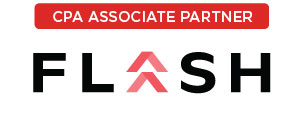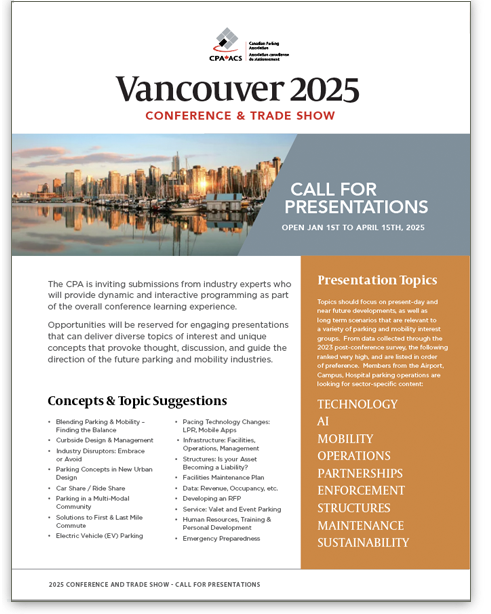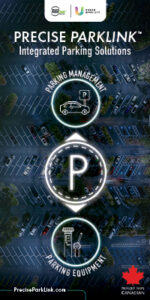Municipal Curb Management and Artificial Intelligence: A Smarter Future for Canadian Cities
By Rick Neubauer
Curb management is rapidly becoming a major issue in Canada, particularly in densely populated cities like Toronto, Vancouver, and Montreal. Urban congestion is increasing for a number of reasons, including rising e-commerce deliveries, the growing presence of ride-hailing services, and the overall demand for curb space. This has created a pressing need for municipalities to rethink how they allocate and regulate curb space effectively.
Why is it so important for cities throughout Canada to address this issue? Rising competition for curb space has led to increased traffic congestion and related safety issues, a host of regulatory challenges as cities struggle to create curb management policies from scratch, and stumbles in achieving sustainability goals. Without well-planned curb management strategies, cities risk worsening congestion, facing increased carbon emissions, and suffering from inefficient use of public space.
The good news is that technology can help. As municipalities strive to develop smart city initiatives, artificial intelligence (AI) has emerged as a promising tool to enhance curb space efficiency as well as anticipate and meet evolving urban mobility demands. However, the rise of “AI-washing” has made it difficult for cities to differentiate between truly valuable AI-powered solutions and mere marketing buzzwords.
Identifying True AI-Powered Solutions
While AI has the potential to revolutionize curb management by leveraging predictive analytics and allowing cities to take a more proactive stance on managing curb real estate, not every technology that claims to use AI is genuinely leveraging its capabilities. Many companies in the parking and mobility sector promote their solutions as AI-driven when they are merely repackaging basic data analytics or rule-based automation. This phenomenon, known as AI-washing, makes it harder for decision-makers to identify which technologies offer real, strategic value. To avoid succumbing to AI-washing, city planners and managers should ask key questions before investing in AI tools:
Is the company a true technology company?
Determine whether the vendor specializes in developing cutting-edge technology or if it is merely attempting to pivot and retrofit legacy tech into the AI space without deep expertise. When companies attempt to merely repackage their solutions as AI, it usually results in subpar performance and limited capabilities. Repackaging longstanding data analytics tools as being AI-driven is at best dishonest and at worst fraudulent. AI-powered tools should be built with AI in mind from the ground up to deliver optimal functionality.
Companies with technology innovation as their core competency are more likely to provide true, scalable AI solutions.
Does the AI provide strategic value?
Listen carefully to the vendor’s explanation of their AI’s capabilities. If the AI doesn’t provide tangible value—such as improved efficiency, enhanced enforcement, or better forecasting—it may be simply the company’s Marketing hype and not worth the investment.
Can the company clearly articulate how AI is being used?
Even if a solution truly integrates AI, it still must align with the customer’s or city’s strategic goals. Without clear use cases and measurable outcomes, AI-powered solutions risk being costly distractions rather than effective tools. It’s easy to get distracted by shiny objects, but you need to stay true to your strategic direction. Otherwise, you risk wasting money and losing momentum or even worse, going in the wrong directions.
By addressing these questions, municipalities can sift through AI-washing and select solutions that genuinely enhance their curb management strategies.
The Role of AI in Effective Curb Management
When implemented correctly, AI-powered solutions can deliver substantial benefits for cities managing their curb inventory. These technologies provide superior analytics, predictive modeling, and automation capabilities that optimize resource allocation and curb space utilization. AI enables cities to stay ahead of the curve, adapting to evolving urban challenges with innovative, data-driven solutions.
Computer Vision for Real-Time Curb Monitoring
One of the most effective AI applications in curb management is computer vision. Custom AI-driven computer vision models can analyze real-time curbside activity, including traffic flow, parking and loading zone occupancy, and pedestrian behavior. Solar-powered LTE dual-sensor cameras can be deployed without the need for invasive underground wiring, making them a cost-effective and scalable option for municipalities. These cameras provide continuous monitoring and generate rich metadata, enabling authorities to make informed decisions based on real-time insights. With high accuracy and low cost per space, computer vision offers an efficient way to manage curb space while minimizing infrastructure investment.
AI-Powered Enforcement and Regulation
AI can also significantly enhance enforcement by integrating with curb management platforms to detect and address violations automatically. For instance, AI can track vehicles exceeding their allotted parking time and issue citations automatically, reducing the need for manual enforcement. Also, by analyzing ticketing trends, AI can help cities optimize enforcement resources, ensuring fair and efficient regulation. This approach streamlines parking enforcement, reduces administrative overhead, and fosters compliance with curb policies.
AI-Driven Curb Policy Recommendations
AI can serve as a valuable decision-making tool for municipalities by analyzing historical and real-time data to recommend optimal curb policies. For instance, it can predict demand fluctuations and suggest policy adjustments to accommodate different users, such as delivery vehicles, ride-hailing services, and cyclists. AI-powered curb management technology can also help implement dynamic pricing structures based on demand, encouraging turnover and maximizing revenue. Finally, these systems can work in tandem with other smart city technologies, such as traffic control systems and public transit platforms, to enhance urban mobility holistically.
Forecasting the Impact of Policy Changes
One of the most exciting applications of AI in curb management is predictive modeling. AI-driven forecasting engines can analyze data to estimate the impact of different curb policy changes, giving planners and policymakers an idea of how new policies will impact the curb even before they are implemented. For instance, AI models can predict how adjustments to pricing or enforcement will influence revenue generation. Also, by evaluating historical traffic patterns, AI can forecast how curb policy changes will affect congestion levels. Finally, it can estimate reductions in emissions based on optimized curb space management, helping cities achieve sustainability goals.
By leveraging these forecasting capabilities, Canadian cities can design customized data-driven curb policies that balance efficiency, sustainability, and economic growth.
The Future of AI in Curb Management
As Canadian cities continue to grapple with urban congestion and evolving mobility demands, AI will play an increasingly important role in shaping the future of curb management. However, to unlock its full potential, municipalities must choose the right tools, avoiding providers who engage in AI-washing and prioritizing solutions that deliver genuine strategic value.
By adopting AI-driven computer vision models, automated enforcement tools, intelligent policy recommendations, and predictive analytics, cities can transform curb management into a more efficient, sustainable, and adaptable system. This will not only enhance urban mobility but also improve safety, revenue optimization, and the overall quality of life for residents and visitors.
With the right AI-powered solutions, Canadian cities can lead the way in smart curb management, setting a global standard for innovation in urban mobility.
About the author:
Rick Neubauer is the CEO of Umojo, a leading provider of AI-powered curb management technologies. He can be reached at rneubauer@umojo.com.






